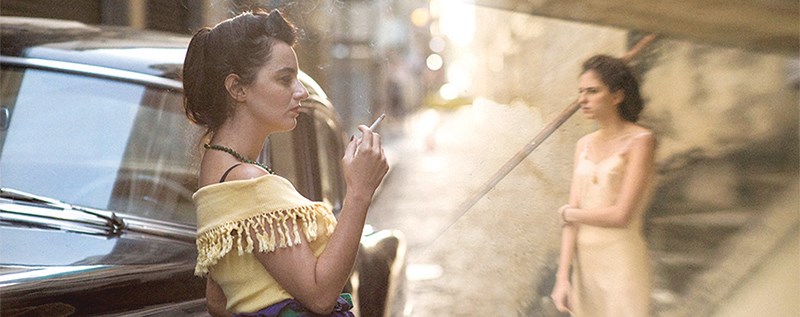Based on Martha Batalha’s novel, The Invisible Life of Euridice Gusmao, this story is set in the 1950s in Rio de Janeiro, Brazil. It is a love story between two sisters who are caught up in a conservative, patriarchal society that goes against their dreams and affects their lives forever.
Their love for each other and family is overshadowed by their dominant and demanding father who causes a tangled mess of guilt, introspection and emotional starvation.
Invisible Life was Brazil’s entry to the 2020 Academy Awards as the Best International Film and winner of the Cannes Film Festival’s Un Certain Regard award, described as a film that demonstrates an unusual style and a nontraditional story. This piece certainly lives up to its international recognitions.
The film opens in the beautiful Brazilian rainforests, creating a visual delight of trees, animals and the beauty of nature while introducing the sisters: Euridice and Guida. As the viewer, we will immediately feel the attraction, emotional dependency and deep need the sisters have for each other.
We learn that Guida is more adventuresome, sexually curious and excited about boys. The teenager in her idealizes the perfect world of forever love and she pursues her dream. Euridice on the other hand is more conservative and dreams of studying piano at the conservatory in Vienna.
The story comes to life when the two sisters are separated by choice. Guida takes off with her boyfriend to faraway places, idealizing the dream of forever happiness. Upon arriving in Greece she soon finds out that her boyfriend has abandoned her and she is pregnant. Upon her return to Brazil, she is faced with a torrent of rage by her father and is told that Euridice has gone to Vienna to study piano. Guida is excommunicated from the family by her father.
The intensity of the drama begins to unfold from this moment on. We learn quite early on that Euridice never went to Europe and that their father lied about her whereabouts. Guida believes what she’s been told and tries to communicate with her sister through a series of letters she asks her mother to forward onto Europe.
We are witness to a tangled web of emotions, seeing the two sisters struggle to find their identity and stay connected to each other. Guida struggles in pursuing a path of self-empowerment and determination.
Euridice pursues her passion for playing piano and this allows her to become invisible to the outside world, to her father and the marital norms expected of her. She builds up a protective wall around her anxiety and depression through her piano playing. She gets married as life would dictate to her that she should.
Cinematographer Hélène Louvart paints a stunning canvas of grainy yellows, blues and reds in a lush environment. Many of the scenes are shot in tight, small spaces that allow the viewer to get close to the inner deepest thoughts of the actors. The scene of her honeymoon night is harsh and realistic. The viewer can either separate themselves from the moment or become an active participant in the emotional angst. I recommend the latter to fully understand the struggle the story weaves.
Director Karim Aïnouz has created a long but rewarding cinematic piece. His capturing of intense moments of introspection and guilt are commendable and kudos must be given to the acting performances of Carol Duarte playing Euridice, and Julia Stockler playing Guida.
Even though the film is long and at times drawn out, I recommend this film to cinema buffs who enjoy the cultural richness of foreign films.
For all of these reasons I give this film three out five tugboats.
Invisible Life (run time: 139 minutes; Portugese with English subtitles) is one of 12 films playing online during Powell River Film Festival with showings available throughout BC any time, any day, from February 5 to 16. For more information, go to prfilmfestival.ca.
Stephen J. Miller is a producer and creative writer in feature films and television, and past owner of repertoire movie theatres.



